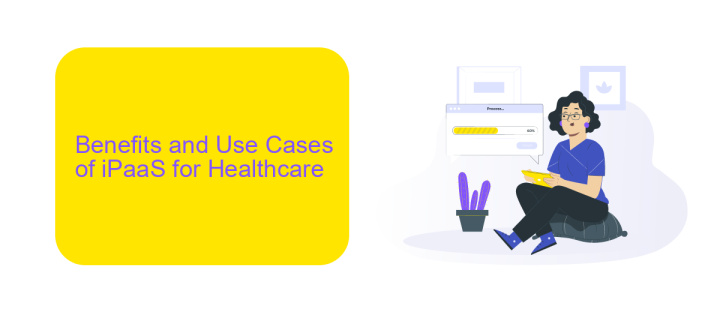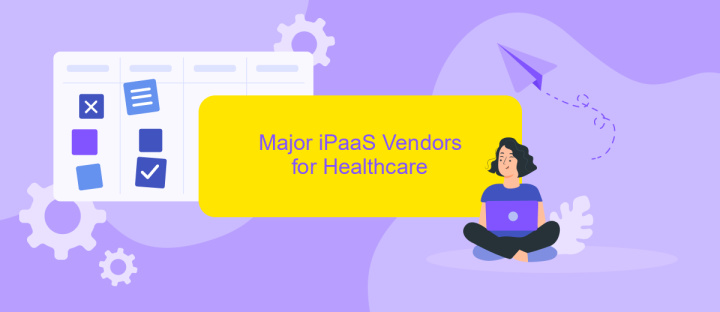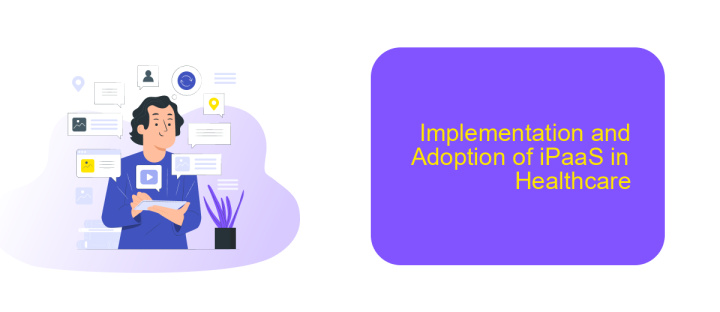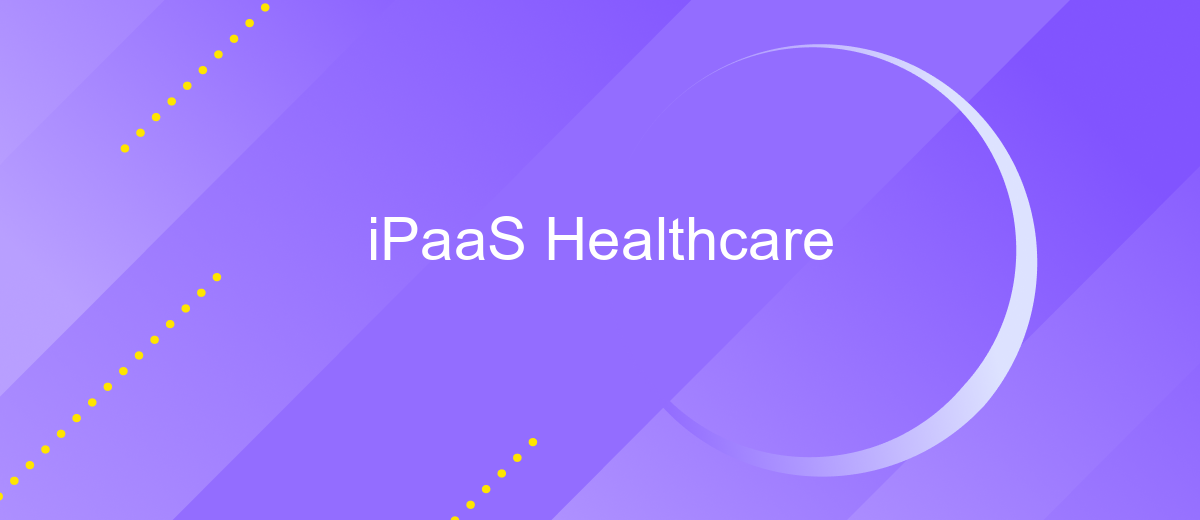iPaaS Healthcare
In today's rapidly evolving healthcare landscape, the integration of various digital systems and applications is crucial for streamlined operations and improved patient care. Integration Platform as a Service (iPaaS) offers a robust solution to connect disparate healthcare systems, enabling seamless data exchange, enhanced interoperability, and real-time analytics. This article explores the transformative impact of iPaaS on the healthcare industry.
Introduction to iPaaS in Healthcare
Integration Platform as a Service (iPaaS) is revolutionizing the healthcare industry by streamlining data exchange and enhancing interoperability between various healthcare systems. iPaaS solutions enable healthcare providers to seamlessly connect disparate systems, ensuring that critical patient information is readily accessible and up-to-date.
- Improved patient care through real-time data sharing
- Enhanced operational efficiency via automated workflows
- Compliance with healthcare regulations and standards
- Cost savings by reducing manual data entry and errors
One such iPaaS solution is ApiX-Drive, which offers robust tools for configuring integrations between different healthcare applications. With ApiX-Drive, healthcare organizations can effortlessly synchronize patient records, billing information, and other critical data across multiple platforms. This not only improves patient outcomes but also optimizes administrative processes, making healthcare delivery more efficient and reliable.
Benefits and Use Cases of iPaaS for Healthcare

Integration Platform as a Service (iPaaS) offers numerous benefits for the healthcare industry, including seamless integration of disparate systems, improved data accuracy, and enhanced patient care. By utilizing iPaaS, healthcare providers can connect electronic health records (EHRs), lab systems, and patient management software, ensuring real-time data synchronization. This leads to better decision-making, reduced administrative burden, and enhanced patient outcomes. Additionally, iPaaS solutions like ApiX-Drive allow healthcare organizations to automate data workflows, minimizing manual entry errors and ensuring compliance with regulatory standards.
Use cases for iPaaS in healthcare are vast and varied. For instance, hospitals can streamline patient admissions by integrating EHRs with billing systems, reducing wait times and improving patient experience. Laboratories can automate test result reporting, ensuring timely and accurate data delivery to healthcare providers. Telehealth services can benefit from iPaaS by integrating video conferencing tools with patient management systems, facilitating seamless virtual consultations. ApiX-Drive, with its user-friendly interface and robust integration capabilities, enables healthcare providers to effortlessly connect and manage various applications, enhancing overall operational efficiency and patient care quality.
Major iPaaS Vendors for Healthcare

In the rapidly evolving landscape of healthcare technology, selecting the right Integration Platform as a Service (iPaaS) vendor is crucial for seamless data exchange and interoperability. These platforms enable healthcare providers to integrate disparate systems, ensuring efficient workflows and improved patient outcomes.
- Mulesoft: Known for its robust Anypoint Platform, Mulesoft offers extensive integration capabilities tailored to healthcare needs, including EHR, telemedicine, and patient management systems.
- Informatica: With its Intelligent Cloud Services, Informatica provides comprehensive data integration and management solutions, emphasizing data quality and governance.
- ApiX-Drive: ApiX-Drive simplifies the integration process with its user-friendly interface and pre-built connectors, making it an excellent choice for healthcare providers looking to streamline workflows without extensive technical expertise.
- SnapLogic: SnapLogic's intelligent integration platform supports real-time data processing and analytics, which are critical for timely decision-making in healthcare environments.
- Microsoft Azure Logic Apps: This service offers scalable and secure integration solutions, leveraging the power of the Azure cloud to connect various healthcare applications and systems.
Choosing the right iPaaS vendor involves considering factors such as ease of use, scalability, security, and compliance with healthcare regulations. Each of these vendors brings unique strengths to the table, making it essential to evaluate them based on specific organizational needs and integration requirements.
Implementation and Adoption of iPaaS in Healthcare

The implementation of iPaaS in healthcare involves a systematic approach to integrating various applications and data sources. This process begins with identifying the key systems that need to be connected, such as Electronic Health Records (EHR), laboratory information systems, and patient management software. The goal is to ensure seamless data flow and interoperability between these systems.
Adopting iPaaS requires careful planning and execution. Healthcare organizations must evaluate their current infrastructure and choose an iPaaS solution that aligns with their needs. ApiX-Drive, for instance, offers a user-friendly platform that simplifies the integration process, making it easier for healthcare providers to connect disparate systems without extensive coding knowledge.
- Assess existing IT infrastructure
- Identify key systems for integration
- Select an appropriate iPaaS solution like ApiX-Drive
- Configure and test integrations
- Train staff on new workflows
Successful adoption of iPaaS in healthcare can lead to improved data accuracy, enhanced patient care, and streamlined operations. By leveraging platforms like ApiX-Drive, healthcare organizations can achieve these benefits while minimizing disruption to their existing workflows.
Future Trends and Innovations in iPaaS Healthcare
As the healthcare industry increasingly adopts digital solutions, the future of iPaaS (Integration Platform as a Service) in healthcare looks promising. Emerging trends include the integration of artificial intelligence and machine learning to enhance data analytics and decision-making processes. These technologies can predict patient outcomes, streamline administrative tasks, and improve personalized care. Additionally, the rise of telemedicine and wearable health devices necessitates seamless integration of various data sources, ensuring comprehensive patient records and real-time monitoring.
Innovations in iPaaS are also focusing on enhancing interoperability among different healthcare systems. Platforms like ApiX-Drive facilitate the effortless integration of disparate systems, enabling healthcare providers to connect electronic health records (EHR) with other applications without extensive coding. This not only accelerates the deployment of new solutions but also ensures data consistency and security. As regulatory requirements and data privacy concerns continue to evolve, iPaaS solutions will likely incorporate advanced encryption and compliance features to safeguard sensitive health information.
FAQ
What is iPaaS in Healthcare?
How does iPaaS benefit healthcare organizations?
What are some common use cases of iPaaS in healthcare?
How secure is iPaaS for handling healthcare data?
Can iPaaS be used for automating workflows in healthcare?
Time is the most valuable resource for business today. Almost half of it is wasted on routine tasks. Your employees are constantly forced to perform monotonous tasks that are difficult to classify as important and specialized. You can leave everything as it is by hiring additional employees, or you can automate most of the business processes using the ApiX-Drive online connector to get rid of unnecessary time and money expenses once and for all. The choice is yours!

